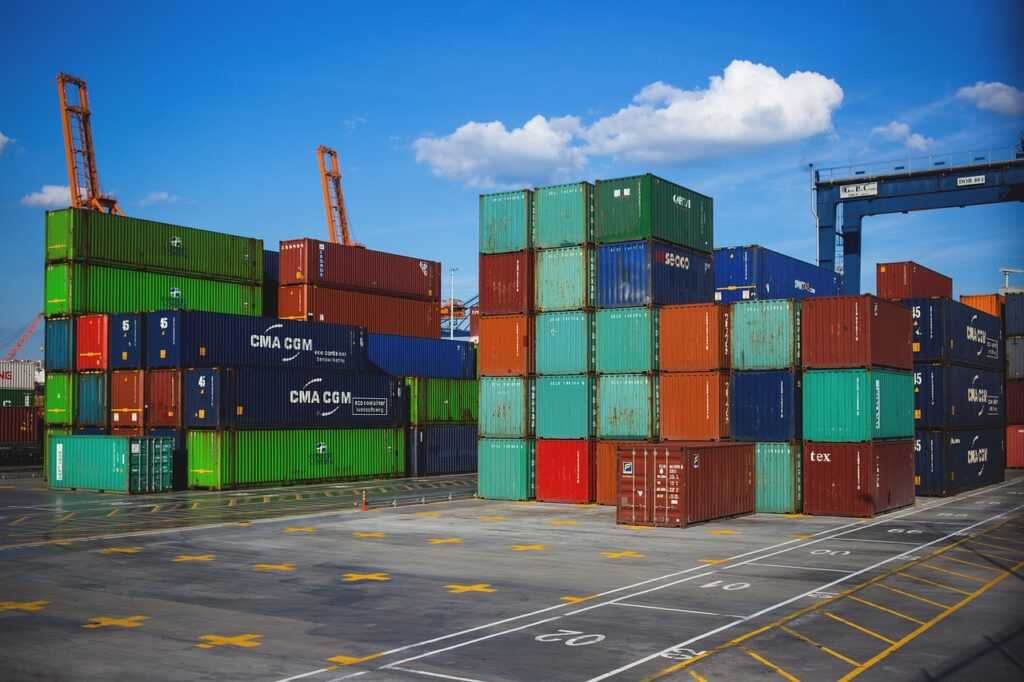The Evolution of Digital Trade
The rise of e-commerce has reshaped international business dynamics. It’s overcome traditional trade barriers, enabling seamless global market access.
The Beginnings of E-commerce
E-commerce began in the 1960s with the development of Electronic Data Interchange (EDI). EDI replaced traditional mailing and faxing to exchange business documents electronically.
In 1991, the introduction of the World Wide Web by Tim Berners-Lee revolutionized online commerce, establishing the basis for modern e-commerce platforms.
Amazon and eBay launched in the mid-to-late 1990s, setting the stage for online retail, allowing consumers to shop from anywhere at any time.
Growth and Expansion Globally
The growth of e-commerce accelerated in the early 2000s with increased internet penetration. Major technology advancements such as secure online payment systems (e.g., PayPal, launched in 1998) and mobile technology facilitated this growth.
By 2020, the global e-commerce market reached $4.2 trillion, driven by giants like Alibaba, Amazon, and Shopify.
The COVID-19 pandemic further fueled this expansion as lockdowns prompted more consumers to shop online, boosting the digital economy.
E-commerce’s rapid growth has redefined supply chain management and customer relationship management (CRM) on a global scale. Initiatives like Alibaba’s Cainiao network and Amazon Prime exemplify how seamless logistics now enable faster, more efficient international trade.
Impact of E-commerce on International Business

E-commerce has reshaped international business practices. It has altered trade regulations and created new market opportunities for businesses globally.
Changes in Trade Regulations
Digital trade has compelled revisions in international trade laws, facilitating smoother cross-border transactions. Nations have updated regulations to accommodate digital signatures and electronic contracts.
For example, the United Nations’ Model Law on Electronic Commerce provides a legal framework for online transactions.
Moreover, many countries now recognize electronic invoicing, simplifying taxation and customs processes. These regulatory changes have reduced trade barriers and promoted global e-commerce growth.
New Market Opportunities
E-commerce platforms have opened new markets for businesses. Small and medium-sized enterprises (SMEs) can now reach international audiences without substantial investments.
Platforms like Alibaba and Amazon allow businesses to list products and manage sales globally. Social media marketing also helps companies target specific demographics across various countries.
Additionally, e-commerce enables businesses to analyze consumer data, tailoring products and services to meet diverse international needs. This access to global markets has transformed traditional business models and expanded revenue opportunities worldwide.
Key Players in Digital Trade
In the realm of digital trade, key players have reshaped the landscape for international business. These entities range from major e-commerce platforms to emerging startups, each contributing to the digital trade.
Major E-commerce Platforms
The dominance of major e-commerce platforms has redefined global trade by offering accessible online marketplaces.
- Amazon: Founded in 1994, Amazon has become a global leader with a market value exceeding $1 trillion as of 2023. Its comprehensive logistics network, Amazon Prime, and global reach make it a pivotal player in digital trade.
- Alibaba: Established in 1999, Alibaba Group spearheads e-commerce in China. Platforms like Taobao and Tmall cater to both local and international markets, with the Alibaba International Station facilitating cross-border trade.
- eBay: Launched in 1995, eBay connects buyers and sellers worldwide. Specializing in consumer-to-consumer and business-to-consumer sales, eBay has created a reliable marketplace for unique and rare items.
- Walmart: Although traditionally a brick-and-mortar giant, Walmart has expanded its e-commerce presence significantly. Its acquisition of Flipkart in 2018 and the growth of Walmart.com have bolstered its market position.
- Rakuten: Known as the Amazon of Japan, Rakuten offers a wide range of services from e-commerce to fintech. Its loyalty program, Rakuten Super Points, has attracted millions of users globally.
These platforms have streamlined global trade, making it easier for businesses to reach diverse markets.
Emerging Startups in Digital Trade
Emerging startups have introduced innovative solutions in digital trade, catering to niche markets and specific needs.
- Shopify: Founded in 2006, Shopify provides a platform for businesses to create online stores. It supports over 1 million businesses worldwide, empowering SMEs with tools to sell globally.
- Stripe: Specializing in online payment processing, Stripe has simplified global transactions since 2010. Supporting multiple currencies and payment methods, it has become essential for digital businesses.
- Wayfair: Launched in 2002, Wayfair focuses on home goods and furniture. Its extensive online catalog and rapid shipping have made it a preferred choice for international buyers.
- Farfetch: Since 2007, Farfetch has catered to luxury fashion. By connecting high-end brands and boutiques with consumers, it has created a global fashion marketplace.
- MercadoLibre: Dominating Latin American e-commerce, MercadoLibre operates in 18 countries. Its integrated platform includes online payments, marketplace, and logistics.
These startups, through innovation and specialization, offer unique contributions to digital trade.
Challenges and Solutions in E-commerce
E-commerce has transformed international business, but it also presents unique challenges. Addressing these hurdles is crucial for sustained success.
Logistical Hurdles
Navigating logistics in e-commerce involves complex processes. International shipping often faces delays due to customs, varied regulations, and lack of infrastructure in some regions.
For instance, customs procedures in some countries are more stringent, causing delays. To mitigate these issues, businesses can partner with reliable logistics providers and implement real-time tracking systems.
Companies like DHL and FedEx offer advanced solutions tailored for global e-commerce.
Cybersecurity Concerns
Cybersecurity remains a critical issue in e-commerce. The increase in online transactions has led to more cyber threats, including data breaches and payment fraud. In 2020, the FBI reported a 69% increase in cybercrime complaints.
To protect customer data, businesses should invest in robust security measures like SSL certificates, two-factor authentication, and regular security audits. Companies like Norton and McAfee provide comprehensive cybersecurity solutions designed for e-commerce operations.
Addressing these challenges with strategic solutions can ensure smoother operations and build customer trust in the digital marketplace.




